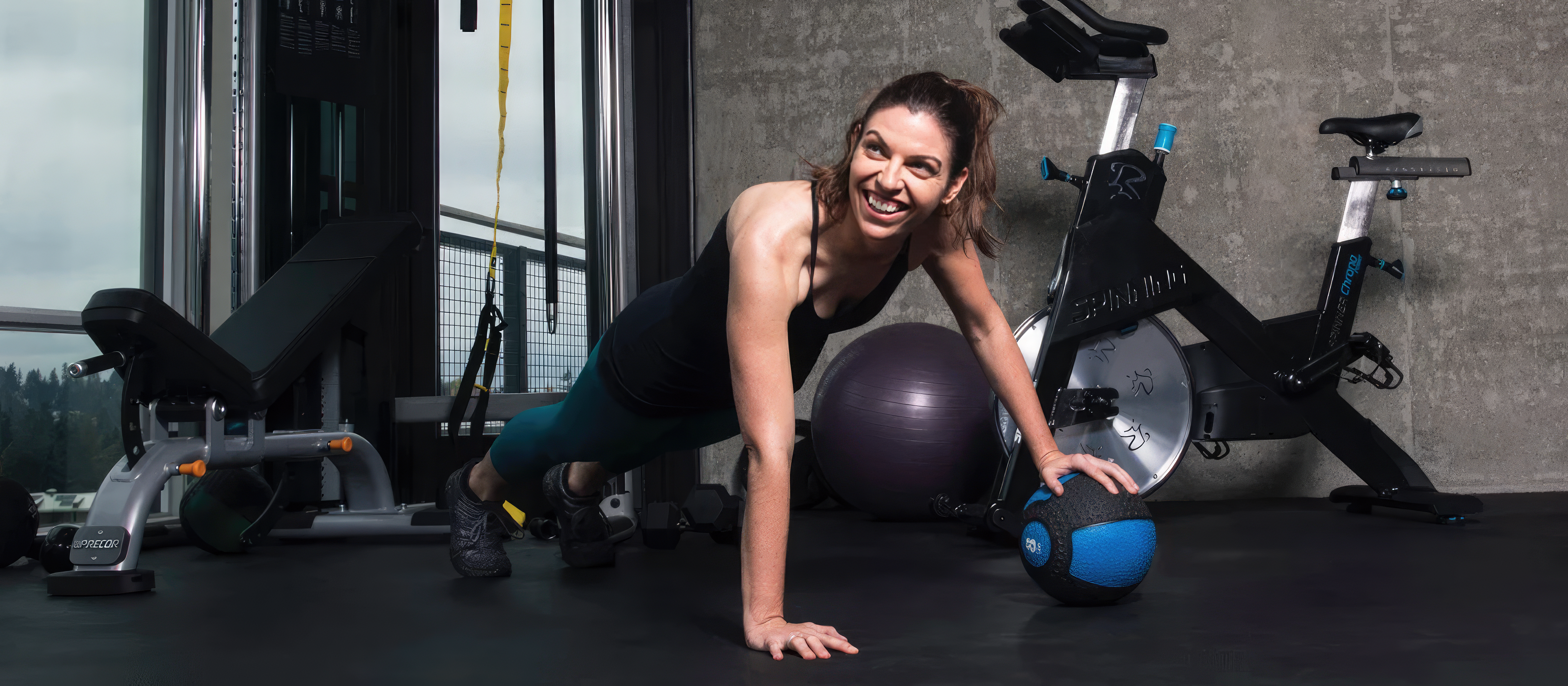Your very own iron temple…

Many bodybuilders (myself included) begin weight training in the relative security of their own homes. This has many benefits but also some disadvantages to training at a gym. For some people training at home is more suitable – it really depends on the kind of person you are.
Many people find commercial gymnasiums to be intimidating. This seems to be true for lots of people who have never set foot inside one – it’s a misconception that all gyms are sawdust and sweat filled dungeons full of nasty aggressive meat-heads. In fact, many gyms are air conditioned, clean, safe environments to be in, with little negative behaviour from its members. For other people they may have been to a gym that they didn’t like, and so feel that gyms aren’t for them, despite there probably existing a gym that they would find very agreeable. Regardless, for these people training at home is the only option really available to them, unless they are particularly hardy of constitution and can overcome their fears.
Advantages
Gym on your doorstep (well, within!)
When you train at home you don’t have to travel any distance whatever to get to your gym. You just pop your training clothes on, get your belt etc. and walk downstairs or wherever to your home gym. It’s the ultimate in convenience! And when you finish, you can jump straight into a shower and then be back in your living room or study within minutes. If you train at a commercial gym you might travel up to an hour or more either way to get to the gym – this eats into your day and also tires you out, affecting your workouts.
No waiting for equipment
Unless you’ve got a friend training with you you’ll never need to wait for any piece of equipment when you’re training at home. This means your workouts are quicker and more efficient – great benefits to the efficiency of your workouts. When you train at a gym you may sometimes need to wait for other people to finish using the piece of equipment you want to use and this can really affect your concentration, stop you staying warmed up and really increase the time it takes you to complete your workout – not good.
No distractions
At a commercial gym there are MANY potential distractions to stop you concentrating on your workouts properly. This can range from seeing attractive people you can’t keep gawping at, to people chatting loudly near by, to the music being too loud or disagreeable to you. The list goes on. Whereas at home there’s just you, your equipment and whatever selection of music you desire. This allows you to get into your ‘zone’ and train the way you want, with maximum concentration.
Disadvantages
Equipment
Unless you’re very rich you won’t have the same amount of equipment in your home gym as you would find at a decent commercial gym. This means that you won’t be able to perform some of the exercises that you can at a gym. Generally, this would affect back and leg training more than your other body parts and this can really affect your overall physique.
Because of this you must really focus on your leg and back training when using a home gym, and wherever possible buy more leg and back equipment as money and room allows. An alternative is to go to a commercial gym a few times a month to train legs and back. If your preferred gym allows you to pay per visit this may be cost effective.
Lack of motivational factors
When you train at home you don’t have other people to spur you on (even having a training partner isn’t as good) – seeing other people’s physiques and watching them grow month by month can be VERY motivational as you want to grow as quickly as them or get to be bigger than they are. Even training in a gym with members of the opposite sex present can be extremely motivational – you want to impress them with your training prowess!
Laziness
It’s very easy to avoid training when you train at home as it is almost so easy to go weight training that you think ‘oh, I’ll train later – I only have to pop downstairs’. This can quickly turn into days or weeks since you last trained. If you train at a gym you have to schedule in your visits to the gym and this can help keep you training regularly and get you in the habit.
How to minimize the disadvantages
Make the most of the equipment you have. Experiment wherever you can with new exercises using the same old pieces of equipment you have. You’ll be amazed at what you can come up with (off the top of my head I can think of nine exercises you can do for biceps just with a pair of dumbbells!).
Make your own equipment
Things like home made chinning bars, wrist exercisers, pulley systems with rope and lumps of iron, that sort of thing. Try to think of things that will help you perform exercises that you can’t currently do with the equipment you have. This way you’ll be able to improve your workouts whilst minimizing expense. Of course, if you can afford to just buy the proper equipment do so but don’t think this is your only option. When I was 13, and just starting out I only had two dumbbells, not even a bench or anything. I used to use my bed to do do dumbbell bench presses!
My dad, bless him, used his ingenuity and make a connecting bar for the dumbbells so that I could put them together to make a barbell. Just this hollow bar with locking screws at either end alone transformed my workouts, effectively doubling the number of exercises I could do. The next thing we did was to screw a bar between two narrow walls in our shed so that I could do chins – massively improving my back workouts. Next up was a bench, with leg extension / curl adductor and I was rocking! Legs, back and upper body all covered. My dad even made me some extra weight plates and some bars when I grew stronger. And of course, I grew way better than when I only had a couple of dumbbells.
Try to get a training partner
Training at home can be very boring as you’re the only person training – you’re on your own. No one to speak to and no one to watch. If you have any friends who you can train with you’ll probably enjoy your training much more and grow faster because of it. The competition between you will also help, as will having your friend training with you make you want to miss less workouts (your friend would soon get unhappy if he / she keeps turning up to train but gets sent away…).
Put up posters
Posters of professional bodybuilders in the room where you train (if allowed or it’s appropriate – no good if you train in your dining room, say!) can be very inspirational – in between (or even during!) you can gaze up at them and be inspired. This is a cheap but effective way of improving your training at home.
Train at a consistent time of day
If you train first thing in the morning, for instance, and train at the same time each time you train then you’ll probably have much better, more intense workouts than you would if you are constantly varying the time you train.
Don’t train too late in the evening
Because it is so easy to train at any time you like it can be tempting to train quite late in the evening, after you’ve eaten and watched a bit of tv or surfed the net for a while. This can be quite a bit less effective than training earlier in the day for a few reasons, the two most important being that you are already tired from the day and two that training late in the evening will affect your sleep as it takes a good few hours for your body to ‘come down’ from the weight training session.
This means not only will you not train as intensely when you train at home in the evenings but also you won’t sleep very well, meaning that you won’t recover and grow as well as you could. Ideally you will train early in the mornings, when you’re at your most fresh and awake.
Conclusion
Training at home can be a very positive experience – you can learn about weight training and spend as much or as little time in the gym as you like, with no-one around to heckle you. At the same time it can be restrictive because of the lack of equipment and motivational factors so it really is a trade off.
If you need little external motivation to train hard and consistently, and have a well equipped home gym then training at home may well be better for you than training at a gym but if you need encouragement, enjoy company and like to vary your routines a lot or use machines more than free weights (i.e. barbells and dumbbells) then training a gym is probably more for you. Most people who get into bodybuilding will end up training at gyms – this is mainly because of lack of room for all the gym equipment they’d need and to train with others and gain motivation from it. Horses for courses really – I just hope you enjoy your weight training regardless where you train. Remember, train safely as in bodybuilding it’s consistency and dedication that get you to where you want to be. All the best, train hard!

Guntur is a bodybuilding and powerlifting enthusiast. He is also the main author of this blog https://learn-bodybuilding.com/
Guntur also works as a Personal Trainer in his town.
In his free time, he likes to learn new languages and reading.
You can contact him from this website’s Contact Page.